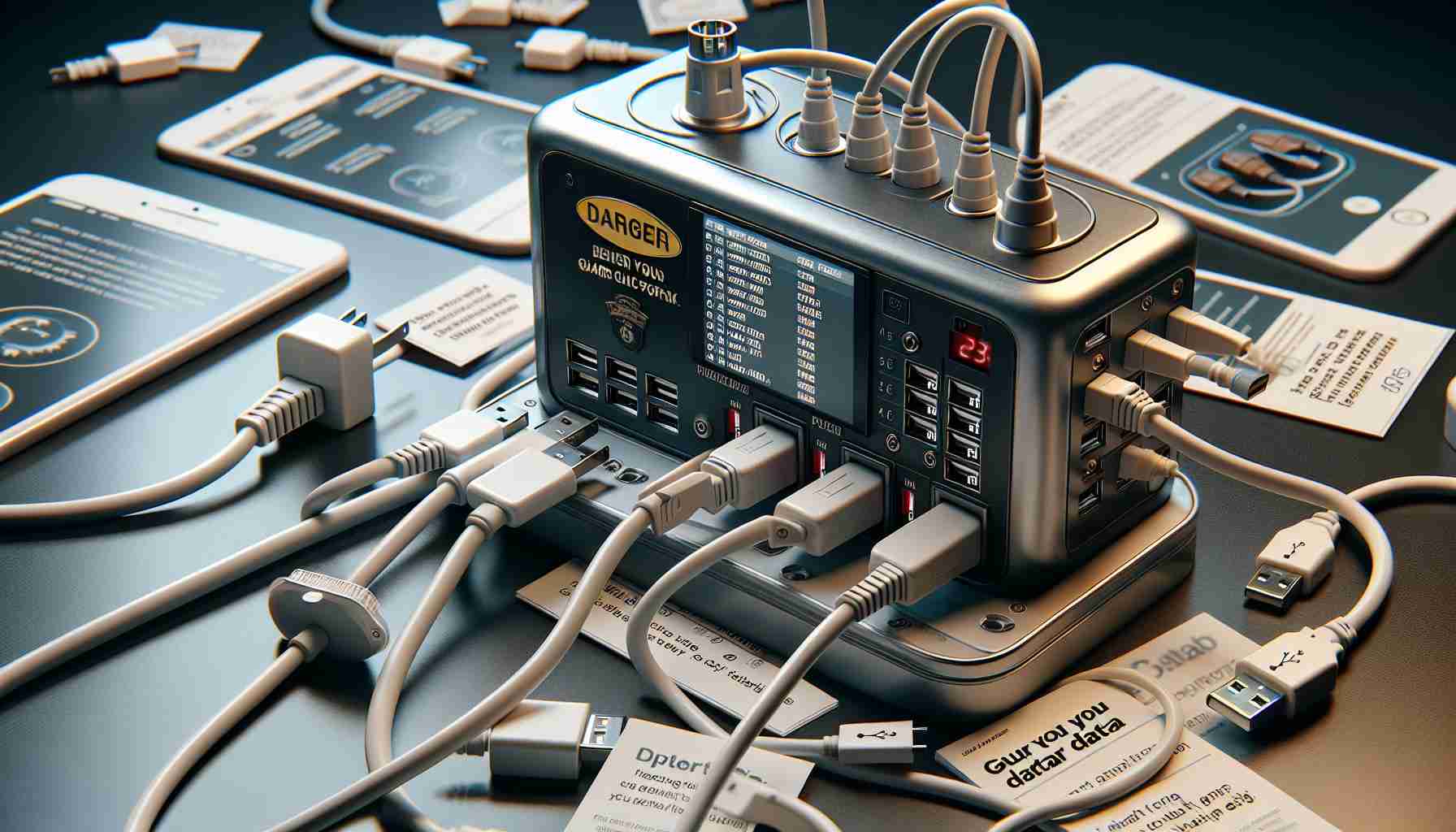Using public USB charging ports can expose your device to potential data breaches and cyber attacks. Hackers may exploit the dual functionality of USB ports, known as Juice Jacking, to steal personal information or inject malicious code into your device.
When a device is compromised, hackers can access sensitive data such as email credentials, social media accounts, and even banking information. Personal data stored on the device, including contacts, photos, messages, and more, is also at risk of being collected. Furthermore, users are susceptible to data ransom demands if infected with malware.
The Cambodia High-Tech Crime Department advises users to avoid charging their devices through public USB ports. In addition, it is recommended to use strong passwords, enable multi-factor authentication, regularly back up data, and exercise caution when dealing with suspicious emails, calls, or messages. Stay vigilant to protect your data and privacy from potential cyber threats while charging on-the-go.
How Safe Are Public USB Charging Ports?
Public USB charging ports are a convenient way to power up your devices when you’re on the go, but they also pose risks that many people may not be aware of. While the previous article touched on the dangers of Juice Jacking, there are additional considerations to keep in mind.
What other risks are associated with using public USB charging ports?
One important risk to note is the potential for juice swapping. Juice swapping occurs when a hacker tampers with a public USB charging port to install hardware that can access and download the data from connected devices. This method bypasses the need to transfer data through the USB cable and can be harder to detect.
Are there any precautions users can take to protect themselves?
Aside from avoiding public USB ports, users should consider investing in data blockers. These small, inexpensive devices act as a barrier between your device and the charging port, allowing power to flow through while blocking data transfer. Data blockers are a simple yet effective way to safeguard your information.
What are the advantages and disadvantages of using public USB charging ports?
Advantages:
– Convenience: Public USB charging ports are readily available in many locations.
– Cost: Using public ports eliminates the need to carry around multiple chargers.
– Accessibility: They provide a quick way to charge your devices in public spaces.
Disadvantages:
– Security risks: Potential exposure to data theft and malware.
– Compromised privacy: Hackers can access personal information stored on your device.
– Lack of control: Users have limited visibility into the security measures implemented on public charging stations.
While public USB charging ports offer convenience, it’s crucial to weigh the risks and benefits before plugging in your device. Taking proactive steps to protect your data, such as using data blockers or investing in portable power banks, can help mitigate potential threats.
For additional information on cybersecurity best practices and data protection, visit Cyber.gov.au. Stay informed and stay secure in an increasingly connected world.























